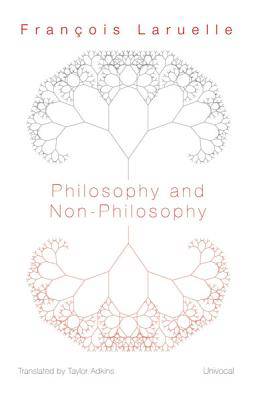
- Afhalen na 1 uur in een winkel met voorraad
- Gratis thuislevering in België vanaf € 30
- Ruim aanbod met 7 miljoen producten
- Afhalen na 1 uur in een winkel met voorraad
- Gratis thuislevering in België vanaf € 30
- Ruim aanbod met 7 miljoen producten
Omschrijving
Each generation invents new practices and new writings of philosophy. Ours should have been able to introduce certain mutations that would at least be equivalent with those of cubism, abstract art, and twelve-tone serialism: it has only partially done so. But after all the deconstructions, after Wittgenstein, Heidegger, and Derrida, this demand takes on a different dimension: What do we do with philosophy itself? How do we globally change our relation to this thought, which keeps indicating that it is increasingly conservative and repetitive? These two questions together have prompted what we call "non-philosophy."
Non-philosophy is not the negation of philosophy. It is the suspension of philosophy's claim to think the real (Principle of Sufficient Philosophy), and it is the invention of new usages of thought and language that disrupt the rational narrative of the real, which is precisely what every philosophy is. Non-philosophy should rather be understood à la the "non-Euclidean," namely, as a generalization of the philosophical beyond its traditional limitation by the unitary or "Heraclitean" postulate. From then on, an infinite number of philosophical decisions that are no longer mutually exclusive will correspond with any real phenomenon.
Philosophy and Non-Philosophy is widely considered the first fully explicit elaboration of non-philosophy and one of its most important introductory texts.
Specificaties
Betrokkenen
- Auteur(s):
- Uitgeverij:
Inhoud
- Aantal bladzijden:
- 248
- Taal:
- Engels
- Reeks:
Eigenschappen
- Productcode (EAN):
- 9781937561123
- Verschijningsdatum:
- 1/05/2013
- Uitvoering:
- Paperback
- Formaat:
- Trade paperback (VS)
- Afmetingen:
- 135 mm x 203 mm
- Gewicht:
- 385 g

Alleen bij Standaard Boekhandel
Beoordelingen
We publiceren alleen reviews die voldoen aan de voorwaarden voor reviews. Bekijk onze voorwaarden voor reviews.











